Comments
No comments yet. You can be the first!
What did others read after this?
Content extract
Socratic Seminar Questions on Harper Lee’s To Kill a Mockingbird • Is code-switching a necessary skill? Should people code-switch? Is there something better or worse about someone who always speaks the same way? Include evidence from characters in the book including Calpurnia, Mayella, Dolphus Raymond, and others. • How is courage demonstrated in the book? Who is courageous? How does this fit the book’s definition of courage? Does that fit your definition of courage? • How is innocence demonstrated in the book? Who loses innocence? How? • Compare the segregated South during the Depression Era to our time and place today. Using evidence from the text, how are we similar? How are we different? • Why did Harper Lee select a child to be the narrator of the novel? Would the story have been as effective if she had chosen a different narrator? Use evidence from the text and your flipped perspective journal. • Atticus often tells the children to walk a mile in other
people’s shoeswhy is this quote important? What are some examples of people walking in someone else’s shoes? What is learned from this? • How does Jem classify “folks”? How does Scout? Who do you think is right? Why? How do these definitions apply or fail to apply today? • To Kill a Mockingbird is a highly controversial book with some people arguing that it is inappropriate for children because of its themes and the portrayal of certain characters and stereotypes. Which elements of the book do you think they found troubling? What do you think? Should we or should we not have studied To Kill a Mockingbird? Why? • How did your opinion of various characters change throughout the story? (Consider Boo Radley, Aunt Alexandra, Mayella Ewell, and others and explain how your opinion changed). What lesson do you think Harper Lee was trying to teach through these characters? 2014 www.literacycookbookcom Contributed by Jamie Sterlacci
people’s shoeswhy is this quote important? What are some examples of people walking in someone else’s shoes? What is learned from this? • How does Jem classify “folks”? How does Scout? Who do you think is right? Why? How do these definitions apply or fail to apply today? • To Kill a Mockingbird is a highly controversial book with some people arguing that it is inappropriate for children because of its themes and the portrayal of certain characters and stereotypes. Which elements of the book do you think they found troubling? What do you think? Should we or should we not have studied To Kill a Mockingbird? Why? • How did your opinion of various characters change throughout the story? (Consider Boo Radley, Aunt Alexandra, Mayella Ewell, and others and explain how your opinion changed). What lesson do you think Harper Lee was trying to teach through these characters? 2014 www.literacycookbookcom Contributed by Jamie Sterlacci
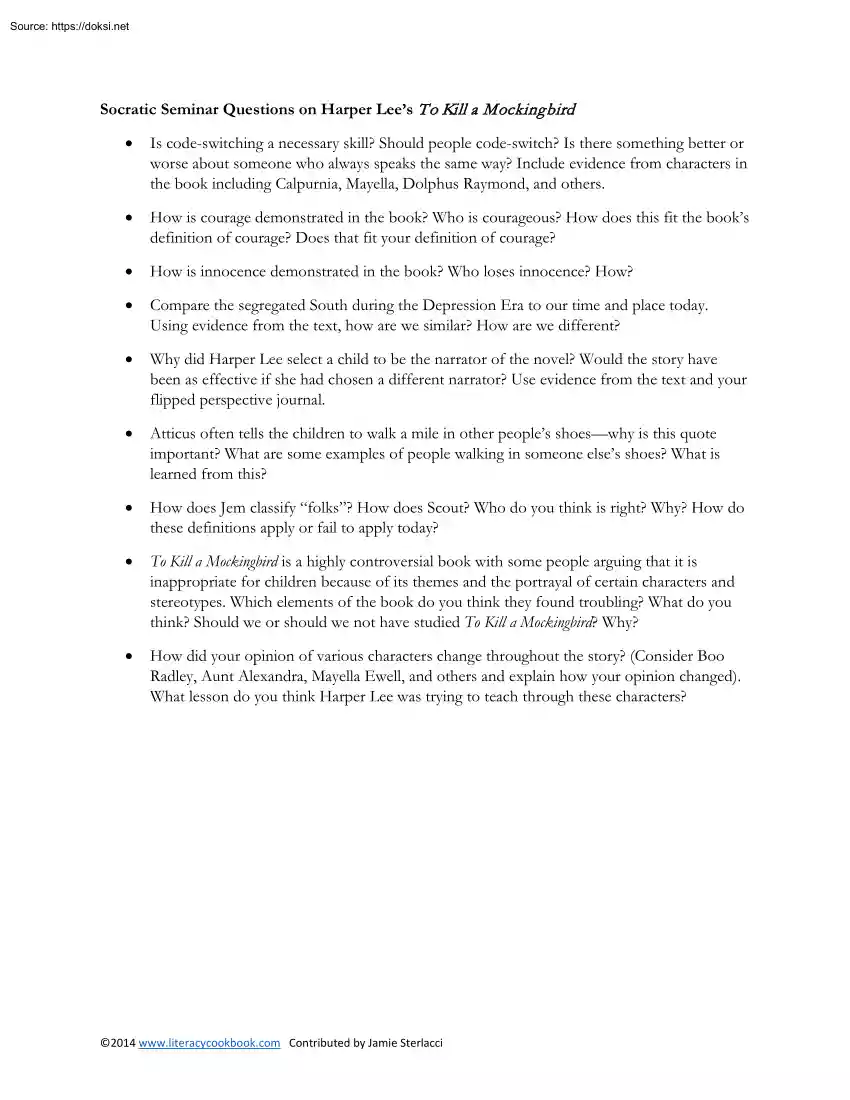
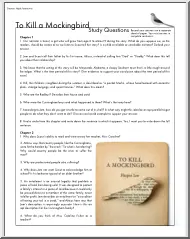
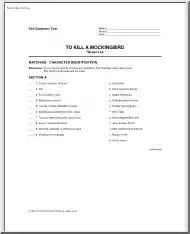
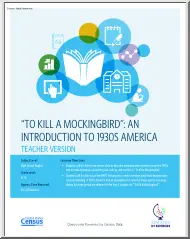
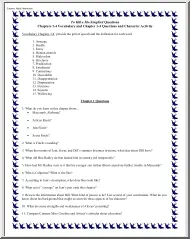
 Just like you draw up a plan when you’re going to war, building a house, or even going on vacation, you need to draw up a plan for your business. This tutorial will help you to clearly see where you are and make it possible to understand where you’re going.
Just like you draw up a plan when you’re going to war, building a house, or even going on vacation, you need to draw up a plan for your business. This tutorial will help you to clearly see where you are and make it possible to understand where you’re going.